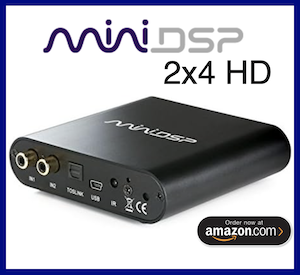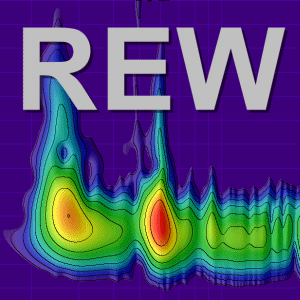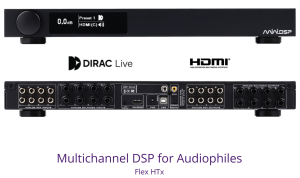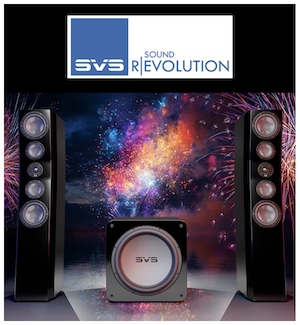Dear REW Experts,
I am facing a major issue with this error message:
ASIO device has been reset due to resync request from driver.
No matter what I do, I can't work it out.
I am using an Apollo X Quad Interface via Thunderbolt 3 on an Intel NUC 10, Windows 11 PC. The interface is set to internal clock, since when I set it to S/PDIF I can't get access on the inputs.
For the past three years I am working around this error message. When it pops up during a measurement the measurement usually gets discarded and I have to repeat it. Sometimes several times until I luckily and finally sucessfully bypassed a resync event. Another way is to keep the measurements as short as possible (<256k) because that increases the probability of not getting into the resync interval while measuring.
However it is a huge hassle to repeat each second or third measurement and lately I faced a wall that I can't work around.
When trying to calibrate the sound card, each time after the "measure the soundcard" dialog or 'set the levels dialog', just when the measurement dialog should pop up, the resync error modal pops up instead, and the measurement wasn't already even started. This behavior is reproducible, making it impossible to calibrate/measure the sound card.
I then switched to Java Drivers and reselected all inputs. It works in that regard that I don't get a resync modal, however the measurement is distorted like crazy and I get the modal warning that I shouldn't use it to calibrate. The result is also not determined, changing its appearance each time when measuring.
I suppose it's buffer size issues with the Java Drivers that lead to breaks and clips in the data.
The used configuration of the sound card is 512 Buffer Size, 48KHz. However this is standard and works well with all programs incl. DAWs.
I don't know how I can fix this resync dialog. I checked each and every setting of the soundcard hundreds of times within those years and also couldn't find a REW setting which would remove the resync error.
Meanwhile I appeal and plead for help. There were also some other issues in the background:
- For some unkown reason REW is measuring in stereo no matter which single output is selected. In the signal chain after REW there is no mono that could cause this. Especially as in the Generator it works and follows the selected output, but when opening the measure dialog and having the same output selected like in the Generator both speakers play the sweep. I thought about pulling the cables of the other monitor to force the measurement to sweep on only one speaker, but that's also not an ideal solution.
- Furthermore I wanted to calibrate my soundcard using REW for more accurate measurements and read through the online guide and followed the dialog hints of the program, while configuring my interface to the correct line in and out levels. In this process I configured the sound card for loopback compatibility in a way that I cannot use it for anything else anymore until the calibration measurement is done.
I dearly hope there is someone who can help me on this. I thought I can't be possibly the only person on earth using an Apollo X together with REW on Windows but when googling the resync modal message I couldn't find precise information for my case. The modal also includes the hint of "Input and Outputs may need to be reselected", that however is never the case. The outputs have the same names after the resync and are always still correctly selected. Please if you have any idea of what I can do to fix this issue, please help me.
Kind regards, Chris
I am facing a major issue with this error message:
ASIO device has been reset due to resync request from driver.
No matter what I do, I can't work it out.
I am using an Apollo X Quad Interface via Thunderbolt 3 on an Intel NUC 10, Windows 11 PC. The interface is set to internal clock, since when I set it to S/PDIF I can't get access on the inputs.
For the past three years I am working around this error message. When it pops up during a measurement the measurement usually gets discarded and I have to repeat it. Sometimes several times until I luckily and finally sucessfully bypassed a resync event. Another way is to keep the measurements as short as possible (<256k) because that increases the probability of not getting into the resync interval while measuring.
However it is a huge hassle to repeat each second or third measurement and lately I faced a wall that I can't work around.
When trying to calibrate the sound card, each time after the "measure the soundcard" dialog or 'set the levels dialog', just when the measurement dialog should pop up, the resync error modal pops up instead, and the measurement wasn't already even started. This behavior is reproducible, making it impossible to calibrate/measure the sound card.
I then switched to Java Drivers and reselected all inputs. It works in that regard that I don't get a resync modal, however the measurement is distorted like crazy and I get the modal warning that I shouldn't use it to calibrate. The result is also not determined, changing its appearance each time when measuring.
I suppose it's buffer size issues with the Java Drivers that lead to breaks and clips in the data.
The used configuration of the sound card is 512 Buffer Size, 48KHz. However this is standard and works well with all programs incl. DAWs.
I don't know how I can fix this resync dialog. I checked each and every setting of the soundcard hundreds of times within those years and also couldn't find a REW setting which would remove the resync error.
Meanwhile I appeal and plead for help. There were also some other issues in the background:
- For some unkown reason REW is measuring in stereo no matter which single output is selected. In the signal chain after REW there is no mono that could cause this. Especially as in the Generator it works and follows the selected output, but when opening the measure dialog and having the same output selected like in the Generator both speakers play the sweep. I thought about pulling the cables of the other monitor to force the measurement to sweep on only one speaker, but that's also not an ideal solution.
- Furthermore I wanted to calibrate my soundcard using REW for more accurate measurements and read through the online guide and followed the dialog hints of the program, while configuring my interface to the correct line in and out levels. In this process I configured the sound card for loopback compatibility in a way that I cannot use it for anything else anymore until the calibration measurement is done.
I dearly hope there is someone who can help me on this. I thought I can't be possibly the only person on earth using an Apollo X together with REW on Windows but when googling the resync modal message I couldn't find precise information for my case. The modal also includes the hint of "Input and Outputs may need to be reselected", that however is never the case. The outputs have the same names after the resync and are always still correctly selected. Please if you have any idea of what I can do to fix this issue, please help me.
Kind regards, Chris














